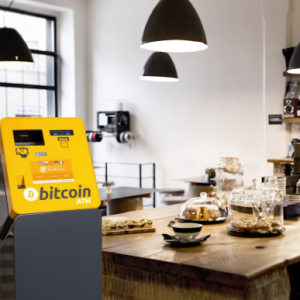Curious if leasing your land for a solar farm is a smart financial move? With the growing need for renewable energy nationwide, more landowners are exploring solar lease agreements as a lucrative alternative to traditional land uses.

Government incentives have made it easier for landowners and developers to collaborate in creating sustainable solar farms. By leasing your land, you can benefit from long-term passive income with predictable rates, along with a host of other advantages.
This blog will walk you through the benefits, considerations, and processes involved in solar farm leasing, helping you make an informed decision about your land’s potential in the renewable energy market.
The Growing Demand for Solar Farm Land
The renewable energy landscape is evolving fast, with solar power at the forefront. This shift offers landowners a great opportunity to join the green energy movement.
Leasing land for solar farms offers landowners significantly more compared to most traditional farming practices. This turns solar leasing into an increasingly attractive and profitable option for property owners who are looking to maximize their land's potential.
Key Benefits of Leasing Land for a Solar Farm
Leasing your land for a solar farm comes with a host of advantages that extend beyond simple profitability. Property owners can enjoy consistent and long-term passive income by leasing land for solar farm while contributing to sustainable energy production. Here are other key advantages that make solar leasing attractive for landowners:
- Stable and Long-Term Income
- Annual payments typically range from $250 to over $2,000 per acre
- Lease terms often include annual payment increases
- Provides a consistent, long-term income stream that can span decades
- Minimal Landowner Involvement
- Solar developers handle all aspects of installation, maintenance, and repairs
- No daily management responsibilities required
- Financial benefits without the hassle of overseeing operations
- Positive Environmental Impact
- Leasing your land for a solar farm is a smart financial decision and contributes to a more sustainable, eco-friendly future
- According to a recent survey, saving money on monthly bills was the main motivation among homeowners for considering going solar in the United States in 2022.
- Potential Tax Incentives
- Eligibility for federal and state tax benefits for renewable energy projects
- An additional financial advantage worth exploring

Financial Security and Risk Mitigation
Long-Term Contracts for Lasting Stability
Solar lease agreements typically span 20 to 40 years, providing landowners with:
-
- A guaranteed source of income for decades
- Protection against short-term market fluctuations
- A reliable financial foundation for long-term planning
Mitigating Market Risks
Unlike agricultural income, which can be highly unpredictable due to factors like weather conditions, crop prices, and market demand, solar leases offer:
-
- Consistent revenue regardless of external economic factors
- Protection against the volatility of agricultural markets
- A safer investment option for risk-averse landowners
Land Suitability and Leasing Opportunities
Not all property is created equally when it comes to ground-mounted solar farm development, but by knowing some important key factors that make a property desirable to a solar developer, you may answer on your own whether or not your property is a good fit for their needs.
Ideal solar farm land is generally flat or with a very slight slope, has unobstructed sunlight, very little shading from trees or other structures, proximity to existing electrical transmission lines, and a size of over 10 acres.
Favorable zoning regulations are also paramount. If your property meets these qualifications, you could be quite well-placed to explore the solar leasing avenue. Another major attraction of solar leasing is that it is very versatile.
Landowners may lease part of their property, continuing agricultural or recreational activities on the remaining land. This allows you to keep a diverse portfolio in land use and profit from both traditional and renewable energy income streams, making the solar lease customizable and attractive to many.
Comparing Solar Leases to Other Land Use Options
|
Factor |
Solar Lease |
Traditional Agriculture |
Residential Development |
|
Income Stability |
High (fixed payments) |
Low (market-dependent) |
Moderate (depends on the real estate market) |
|
Initial Investment |
Low (minimal landowner costs) |
High (equipment, seeds, etc.) |
Very High (construction costs) |
|
Ongoing Maintenance |
Minimal (handled by solar company) |
High (regular farm work) |
Moderate (property upkeep) |
|
Environmental Impact |
Positive (renewable energy) |
Varies (depends on practices) |
Negative (increases carbon footprint) |
|
Land Use Flexibility |
Moderate (can use portions of land) |
High (crop rotation, etc.) |
Low (permanent structures) |
|
Contract Length |
Long-term (20-40 years) |
Short-term (annual) |
N/A (land sale) |
|
Tax Implications |
Potential incentives |
Agricultural exemptions |
Property taxes may increase |
Addressing Common Concerns
When considering a solar lease, it's natural to have concerns. Here are some common issues landowners often wonder about:
- Potential Impact on Property Value
- In most cases, solar leases do not negatively affect property value
- Stable income from a solar lease can make the property more attractive to future buyers
- Many solar leases include land restoration provisions, allowing the land to return to its original condition after the lease
- Legal and Contractual Considerations
- Always consult legal counsel before signing a solar lease agreement
- Ensure the contract includes clear terms on payments, duration, and land use restrictions
- Look for clauses that protect you if the solar company faces financial issues
- Understand your rights regarding property access and maintenance
Steps to Take Before Leasing Your Land
- Evaluate Your Land's Potential: Get a professional assessment of your land's suitability for solar development.
- Research Local Regulations: Check zoning laws, permits, and environmental requirements for solar projects.
- Get Multiple Offers: Compare lease terms and rates from various solar developers and negotiate.
- Consult with Professionals: Seek advice from a tax advisor and have a lawyer review any lease agreements.
- Consider Your Long-Term Plans: Ensure a solar lease aligns with your overall land use strategy and long-term goals.
The Solar Lease vs. Buy Decision
When deciding between leasing your land for a solar farm or installing your solar panels, here are some key factors to consider:
- Initial Investment:
- Leasing requires minimal upfront costs.
- Buying a solar system involves a significant initial investment.
- Maintenance Responsibility:
- With a lease, the solar company handles all maintenance.
- If you buy, you're responsible for upkeep and repairs.
- Energy Savings:
- Installing your system means you benefit directly from the energy produced.
- With a lease, you're not using the energy generated.
- Long-Term Financial Benefits:
- Owning a system can provide greater long-term savings.
- Leasing offers a more predictable and stable income.
- Flexibility:
- A solar lease ties up your land for an extended period.
- Owning gives you more control over your property.
Final Thoughts
Leasing your land for a solar farm is a very rewarding thing financially, and it can even be 'green'. A landowner will reach a fixed revenue stream, and with the development of solar panel farms, the disruption on their lands can be minimized while helping clean up the future.
Solar farms ensure long-term financial benefits with at least disturbance to the environment and also increase the value of the property. Given the considerations-least terms and restrictions on land use, leasing one's land for a solar farm is very tempting for many landowners.
Frequently Asked Questions
How does a solar lease work?
A solar lease works like this: landowners lease some of their land to a solar company, which then installs and operates solar panels, paying for the lease of the property in monthly installments or a lump sum.
How much is a solar lease per month?
Monthly rents have ranged from $250 upwards to more than $2,000 a year per acre, depending on site, acreage, and contract terms.
Why would a landowner want to lease his farmland to a solar farm?
Solar leasing presents a secure, long-term revenue stream with very little management burden and an opportunity to contribute to renewable energy, all of which sounds quite appealing to landowners.







<a href="https://dramacool.org.rs">Drama Cool</a> is a popular website for streaming Asian dramas and movies, offering a vast library of titles across various genres.